As is eternally the case, I’m behind on my book reviews. Way more behind than I’ve been in quite a while. This post is three times as long as the last one.
(TWENTY-FOUR BOOKS WHAT THE HELL MAN.)
I mean, I did get made permanent at my new job. I did go to Dark Mofo (aka Goth Schoolies), though this – depressingly – turned out to be much more lame than expected. And I did catch COVID after three years of avoiding the bloody thing, giving me further evidence that I should really stay the fuck home as much as possible.
(Which, to be fair, probably counts as my House Words.)
Point is, there’s been a bit on. And so with a meagre clutch of excuses, let’s get to the books I’ve been reading since I last graced your eyeballs.
(Mercifully, I’ve been doing a bit more reading which, if nothing else, makes me feel a bit better. YMMV, mind.)
Terra Nostra by Carlos Fuentes (tr. Margaret Sayers Peden)
My rating: five stars
As I rounded the corner on Fuentes’ incredible book, I learned that it was modelled on Finnegans Wake by James Joyce. This immediately made me feel a lot less stupid than I had been feeling, as it automatically meant that Terra Nostra had slid onto the shelf labelled REQUIRED REREADING in my eternal TBR list, and that it was OK to have not grasped everything on the first pass.
Mind you, I’m uncertain how anyone except for a polymath with a great grasp of the intricacies of Philip II’s reign (oh yes and that of King Felipe II, too) would nab everything on the first pass, so perhaps I’m just, y’know, a normal reader.
The mystery of other individuals, señor caballero, is ordinarily grief we neither share nor understand.
This book blew my fuckin’ mind. At times I was like Homer watching Twin Peaks – “Brilliant! I have no idea what’s happening!” – but the scope of the endeavour was remarkable. In it, Fuentes tells the story of all Hispanic civilisation. The narrative jumps from the 16th century to the 20th without warning and skips from an apocalyptic future Paris to a baroque recounting of the shitfight that was the conquistadors’ incursion into the American continent.
The structure alone is a detailed edifice, gigantic, but on a sentence level there’s a Bosch-like perversity, with meaning packed into overstuffed verbal suitcases. There’s bleeding, stinking, flawed humanity across every page, struggling for the transcendence of hard stone. Everything appears connected, and even the future sections are freighted with the plangent weight of some kind of medieval manuscript.
Power does not alter a man’s character. It merely reveals it.
As I reflect on it, the densely-packed nature of the work reminds me of something like Aronofsky’s Mother? in that it’s something that bypasses the brain to a certain extent and roots around in the nerve endings. I agree with some critics that the point of the book isn’t clearly made, so much – it’s a rush of emotion and an overload of information so that the reader can (and probably should) feel all at sea – but goddamn, what an incredible failure, even so.
Maybe next time I’ll have a surer grip on whatever the hell is going on.
The Phantom of the Opera by Gaston Leroux (tr. Mireille Ribière)
My rating: three stars
I first read Leroux’s tale of disfigured incel love when I was in primary school. The musical version of Phantom of the Opera had come out, and man did I listen to that thing a lot. What a time to be alive that was. Kids these days don’t know how lucky they are to not really have to deal with Andrey Lloyd-Webber and his star-birthing projects. (Even if he did give Michael Crawford/Frank Spencer a life of something other than bumbling around saying “oooooh”.)
Anyway, the novel was contained in a big black-and-red book that also held Dracula and Frankenstein, and I remember checking it out from the library at my school repeatedly, drinking in all the details of hidden nooses and hanged (yes, I typed hung and it gave a far more Tom of Finland vibe than I think old Gaston was going for) scenery-shifters. The idea of the subterranean waterways in the Paris Opera were supremely appealing – I don’t actually recall much of the romance of the book from that age, unsurprisingly – and I still kind of want to see them.
(Years later, I visited the Opera but didn’t take a tour. I did, however, see the statue of Lully, which was kinda cool because it is METAL AS FUCK to die because you conducted way too hard.)
Anyway, fast forward to now. It’d been years since I’d read the book and I figured an audiobook might be the way to go. I’m glad it’s the path I took, as I think hearing someone tell you the story the story – a tale of managerial jockeying and coercive control in which the subject gets really good at singing? – is more palatable in this case than having to read it yourself. At any case, it makes the narrative land more on the gossipy ballet corps’ bitching than heart-pounding horror, which is exactly where it should be.
Because, you see, this is a supremely fluffy tale. I’d mistaken it all those years ago as being something superbly dark and grim and full of treacherous machinations, but it’s basically the story of the most cack-handed wooing ever, coupled with mirror-maze interludes you’d normally see in a Bruce Lee film. Mireille Ribière’s translation makes certain sections more shockingly gritty than I’d remembered, but it also highlights the melodrama and the period-appropriate romantic sap of the thing in a way that seems pretty cotton-candy to me these days.
If you don’t know the story, it’s worth a look: the way the narrative passes itself off as a detective story (hello, Mr Poe!) is quite charming, even if the book’s basis as a serial is pretty obvious at times.
I’m gonna have to pull out the album again, aren’t I? (NOT the fucking sequel though, dear god what the hell.)
Mumbo Jumbo by Ishmael Reed
My rating: four stars
Ishmael Reed: bad motherfucker. This novel, which I somehow had never heard of until this year, is incredible: it’s Pynchonian without (as much) wank, it’s got a killer bibliography at the back, it discusses the rise of Vodoun, Hoodoo, and Islam (and places Black individuals at the centre of conspiracies ruling the world), it features a disease (Jes Grew) that is what happens when you get a case of ragtime dance freedom, and is about secret orders fighting each other.
Wait, wait, I’m not finished.
Throw in prohibition, a lot of Black history references I was ashamed to not get, and a range of typographic styles (from film script to scholarly tome to what is thought to be a protest against the Vietnam War) and you’ve got a key work in the Afrofuturism canon (think George Clinton or Sun Ra: technology, magic, race and politics) that’s also a fucking riot.
Americans will not tolerate wars that can’t be explained in simple terms of economics or the White man’s destiny.
I don’t want to discuss the content of the book. It’s almost beside the point, given that a lot of what is talked about seems to verge on MacGuffin territory. Instead, I want to celebrate the vibe and exhort you to read this thing: it’s like Damon Runyon but bigger, more Black, and better.
Time is a pendulum. Not a river. More akin to what goes around comes around.
Again, this is a book that I’ll probably need to reread – especially with more Black history under my belt – but that won’t be a struggle, as this was a delight all through. I know I’m absolutely not the target audience for the work, but I’m intrigued to see how I’d fare knowing a lot more about the times and individuals covered here.
Ragtime by E. L. Doctorow
My rating: four stars
Inspired to get some more ragtime-era stuff into my veins, I blew through Doctorow’s best-known work (I mean, it has to be, right?) in an afternoon. I hadn’t read it since it was on a list when I was at university, but it still glittered. I’m not sure I enjoyed it as much as I did World’s Fair, which I read a couple of years ago, but the prose within still seems effortless, which is more than I can say for a lot of the stuff I read.
Writing is like driving a car at night. You can only see as far as your headlights, but you can make the whole trip that way.
With the aid of a couple of decades under my belt, I certainly enjoyed the novel this time a lot more than I did as a student. It feels like reading an ouroboros; it joins up to itself and seems to exist in a world of its own making. Of course, the world Doctorow fictionalises is our own, filled with luminaries from the ragtime period: Harry Houdini, Evelyn Nesbit, Booker T. Washington, Emma Goldman, Theodore Dreiser, and a raft more – including Freud and Jung (who take a ride on Coney Island’s Tunnel of Love, no less).
I am often asked the question How can the masses permit themselves to be exploited by the few. The answer is by being persuaded to identify with them.
The book covers the story of a rich New York family who take in an abandoned Black child, and then the child’s depressed mother, Sarah. The father of the child, Coalhouse Walker, attempts to win back Sarah and… well let’s just say that things culminate in racist violence over a Model T Ford, which is about the time that the real racism begins.
At heart, the novel – while capturing the feel of a time and place by interweaving tales of the great and the good – is about faith. Faith that what you’re doing matters. Faith that you’ll be treated right no matter what. Faith that people actually give a shit. Religion, racism, obsession and the supposed ability of arduous work to bridge society’s chasms – these are the concerns of the book, though Doctorow’s light touch leaves the story floating rather than leaden.
There are times throughout when things verge on John Irving-esque levels of oddity, but the book never handbrake-turns into saccharine stories the way that author seems to. A proper confection, this thing whirls past before you’ve noticed it’s gone, which certainly left me wanting a bit more.
Blood Meridian by Cormac McCarthy
My rating: five stars
It appears that the only notes I have on this novel in my reading scratchpad are the words holy fuck, Nick Cave is truly an amateur here.
(He would probably agree that compared to McCarthy, who had just died when I read this, he is. The Proposition springs to mind.)
If God meant to interfere in the degeneracy of mankind would he not have done so by now? Wolves cull themselves, man. What other creatures could? And is the race of man not more predacious yet?
This wasn’t the first of the author’s books I’ve read – that’d be No Country for Old Men, which I very much enjoyed – but I suspect this is the one that all others are measured against. It’s perhaps the most non-judgementally violent things I’ve ever read, and certainly is as sparse as the landscapes in which it takes place.
I loved this book, though loved really isn’t the right term for it. It is a fearsome thing.
The Triumph of the Spider Monkey by Joyce Carol Oates
My rating: two stars
This is the first Oates I’ve read, and while it won’t be the last – there are several that have piqued my interest – it certainly isn’t what I’d suggest to anyone as an introduction.
As I understand it, this book was unavailable for the better part of half a century, and has now been resurrected under a pulp imprint. It’s a collection of two novellas that detail madness and the blunt violence of an institutionalised youth and musician, Bobbie Gotteson, and leans on stream-of-consciousness narration a bit much, lending a bit of a dreamlike state to the proceedings – but in a bad way.
If you’re gonna write up a murderous fuckhead, he’s gotta be at least interesting. This guy? Not so much. There’s good reason this was out of print for so long, folks.
The Disinfo Book of Lies by Richard Metzger (editor)
My rating: two stars
A bunch of years ago I used to hang out on an online community called Barbelith. It was named after something found in The Invisibles and was the sort of series of message boards where magic(k) and transhumanism and politics and pop music were all blended together in a way that was to potential chaotes what birdseed is to the Road Runner.
I had some great discussions there, learned a lot, and had my interest in esoterica really piqued, even though I’d always had some kind of a yearning for knowledge in that direction. This book of occult information was discussed there relatively often, and so I ended up picking it up, though as is the way with most of my admittedly kick-arse collection of eldritch tomes, it sat on the shelf for years before I actually got around to reading the bloody thing. (Much less doing anything out of it – though Grant Morrison’s sigilwanking is really the only practical set of instructions in here .
I suspect this stuff was a lot more interesting in 2000, before people had kind of figured out that certain transhumanist luminaries (who have several items between these covers) were actually abusive cockheads. There’s a collection of excerpts from other works (often provided without much in the way of context) and stuff that, given that I’ve done a bit of my own reading about these areas now, seems a bit old hat (and certainly a bit “LOOK AT ME I’M HANGING OUT WITH BURROUGHS!”).
I completely harpooned this thing when I got to the bit that offered some uncritical presentation of Julius Evola’s work. I guess that the turn of the century was a different time, but seriously, man – fuck reactionary fascist philosopher-magicians in the ear.
You’ll learn more from fucking Wikipedia articles or Reddit posts than this book. Start here and go for your life.
The Big Clock by Kenneth Fearing
My rating: five stars
I zipped through this one in a small cabin in the middle of nowhere, in the space of about an hour. The day was moving toward dusk, and the noir tale of George Stroud, a Don Draper-ish character enmeshed in a problematic situation had me entranced.
(The problematic situation involves his sleeping with the girlfriend of his boss – a big wheel in Time Inc. But Not Time Inc. For Legal Purposes – who also becomes the ex-girlfriend of his boss by dint of being, well, dead. Murdered, no less.)
The titular clock isn’t literal: it’s a reference to the mainspring of life running down, the fact we’re all just cogs in the corporate machine, or, perhaps a representative ticking of one’s last moments of freedom. Or sanity: did I mention there’s some multiple-perspective chapters to add some oddity to the mix? Well, there are.
I appreciate any novel that gives researchers their due, and Fearing, having set his story around a true crime magazine, does exactly that. It’s detection of a non-detective kind, and provides a neat way for the author to reveal more of Stroud’s character as the tale progresses towards an ending that’s not good for anyone except the reader.
It’s quick, sounds like you’d expect it do with dames in black (and so on) and features so much drinking that I had a sore liver just from reading. Good result.
(I have since learned that as well as being turned into film noir, this was also made into a movie starring Kevin Costner. I assume he does not have Waterworld gills in it, so maybe I’ll give it a whirl.)
The Beatles: The Biography by Bob Spitz
My rating: four stars
I’ve loved the Beatles ever since my parents bought a Time-Life cassette collection of most of their tunes and played it in the car repeatedly as we took long car trips from the Central West of NSW to the coast. I learned a lot of those tunes – apparently Time-Life don’t like ‘Why Don’t We Do It In The Road’ for some reason – by heart on those trips. I understand this is similar to how Neil and Tim Finn spent their time, though I have yet to produce my own lackadaisical version of Crowded House. But like them, the music of the Fabs has been a large part of my life, and though I don’t listen to them as much as I used to, I can’t deny their influence on my taste.
What is weird, then, is that this is the first beefy biography of the band that I’ve read. Ever. Other books I’d read had been photo-heavy collections with extended captions instead of chapters. I knew the outlines of their story pretty well but wanted to know a lot more. And I guess this is where we come to the big problem of the band: how do you present them as mere mortals? It’s impossible to look at their work without considering the shadow it casts: their role in forming a lot of popular music that came after them – either as a fuck-you to, or an endorsement of them – is huge, and covered very much at length elsewhere. So, it’s difficult to view this musical Voltron (let’s face it, their solo stuff almost universally lacks the four-together special sauce that suffuses even their more cack albums) as something close to human: they’re titans, these enormous figures casting culture-changing shadows.
The Get Back series goes some way towards humanising the quartet: they fuck around and joke and talk shit just like anyone else in a band. The difference is that the stuff they’re noodling away on turns out to be tunes that have generational reach. Oh, that riff? Turns out to be Get Back. ‘Twas nothing.
But still: I felt like some of the curtain had been pulled away: these were normal people who got pissed off at stuff and were dealing with a level of attention that has quite likely never been brought to bear on that many other people, ever. Bob Spitz, in this book, has managed roughly the same thing: each member is fleshed out pretty well, and we get a relatively good idea of where they’re coming from.
The book is supremely researched. In some places – more the earlier parts of the story than for latter years – the coverage is so meticulous that it’s difficult to imagine it being done better. The funk of early German floors, all cheap beer, speed, and a band trying to figure out what the fuck it wanted to be, is exceptionally well drawn, and the hunger for achievement, to make something of themselves is conveyed in a visceral manner. The influence of father figures on the band – Epstein, Martin et al – are rightly lauded, but at the same time the weaknesses of these pillars are also described. Sacred cows are given a bit of a kicking throughout, too – none of the boys, except perhaps George (om) come across without at least recollection of a few supremely fuckheaded moments.
As mentioned, towards the end of the band’s life, the coverage becomes a bit thinner. Albums start to zip by, and it feels a little bit like those university essays I used to write that started brilliantly and then just died in the arse because I was writing them the night before. This is capped off by a particularly grim view or Yoko: Spitz is very much in the demonising camp, and a lot of his vitriol for her seems overcooked – she’s an evil mastermind! – and redolent of shitty racism, with a lack of regard for her prior achievement as an artist.
He lost me at that point, which was a shame, as I really enjoyed most of the book. Bummer.
One Hundred Great Books in Haiku by David Bader
My rating: two stars
Unoriginal?
I guess you could call it that.
Back to street bookshelf.
(I used to run an IG account that did this sort of thing. Where’s my fuckin’ book deal?)
Jerusalem by Alan Moore
My rating: four stars
Imagine, if you will, a book that is infuriating to read in that “holy fuck, Alan, where’s your editor?” kind of way until something clicks in your brain, either from Stockholm Syndrome or a corrective stellar whack on the side of the universal television, and you yearn for more.
That’s Jerusalem.
This is the very definition of passion project, though one could argue that Alan Moore — noted wizard/weird writer of renown/scarily bearded dude down the pub — more than likely doesn’t create works in any other style. Even by his standards, though, Jerusalem stands alone: it’s a physically and psychically intimidating work of perhaps-fiction and a love letter to urban decay. It’s a battle against the forces of horrendous fucking evil, a meditation on free will, an adventure story, a psychogeographical lark of incredible breadth, a historiographical behemoth, and the finest bit of celestial snooker reportage you’re likely to come across.
Death wasn’t the thing with all the expectations and the disappointments and the constant fear that anything could happen. That was life.
It is a miracle this thing exists, and an even bigger one that it was actually published. It’s the sort of thing that, on the face of it, would seem to have a minuscule potential readership, Moore’s fame aside. But bugger me, it draws you in to such a degree that, as mentioned, the irritations become items of endearment because it turns out the clever bastard seeded all those things through there for a purpose. This is a bit like a Ulysses with a multigenerational spread.
The world is no more than an aggregate of your ideas about the world, of your ideas about yourselves. It is the vast mirage, baroque and intricate, that you are building as a shelter from the overwhelming fractal chaos of the universe.
Having finally read it I’ve gotta say a lot of the reviewers that shitcanned this through classist envy should fuck off. This book isn’t here to be your friend: it’s here to tell you a story that mightn’t be nice, but that actually means something to someone. I forgive a lot of sins (and book-holding RSI) because of that.
The Black Notebook by Patrick Modiano (tr. Mark Polizzotti)
My rating: four stars
My impression of this novel — the first Modiano I’ve read, incidentally — is that it’s a bit odd. It’s like weaponised ennui, telling its story from a remove so profound it’s nipped out for a cigarette .
The novel is extremely Parisian, and reading The Black Notebook feels like taking a stroll around that city. We’re with the narrator as he reads a collection of jottings in his notebook from decades before, and we follow him as he attempts to make sense of events from decades earlier, events reeking of criminal endeavours and consistent bullshitting.
My reading journal has, as a potted summary, the words FRENCH? MAIS OUI! written in large letters next to four stars, which is about as much as you need to know about this thing before you read it. It’s a cool movie in book form, and while not much is tied up, it really doesn’t matter. The feeling’s the thing.
The Lake by Yasunari Kawabata (tr. Rieko Tsukimura)
My rating: three stars
I’d read a couple of other Kawabata novels before, but something about this one marks it out. The author is perhaps one of the best examples of the sort of introspective writing that’s executed particularly well in Japanese literature (unsurprisingly, I guess?) but The Lake features an unwholesome nature, a kind of fug that clouds things.
This is undoubtedly intentional: the main character, Gimpei, is a monkey-footed stalker loser who has sex with an underage student and is fucking weird about massages. He’s not a nice person, quite obviously, and reading this novel makes it feel as if he’s coming through the pages and crawling into your brain. Which is, on the whole, not ideal.
So yeah, the subject matter is unpleasant, but the kaleidoscopic approach to story that Kawabata brings to bear is remarkable. It’s part hallucination, part recitation, and quite unlikeable – but the talent behind it is undeniable.
Afloat by Guy de Maupassant (tr. Douglas Parmée)
My rating: two stars
The only notes I took about this book make the point that it is an instance where one man’s nautical diary entries have been turned into a book.
I don’t think we need any more of those thanks very much.
Osebol: Voices from a Swedish Village by Marit Kapla (tr. Peter Graves)
My rating: five stars
Have you ever wondered what life in a Swedish village is like? Osebol exists so you can scratch that particular itch.
Osebol is a small village in northern Värmland, near the river Klarälven. It once had a thriving chipboard factory. It’s a quiet place, and over the course of 800 pages (which you’ll zip through in one sitting) Marit Kapla presents interviews with the people left in the village after urban drift has winnowed their numbers.
There’s about 40 stalwart residents, aged from 18 to 92. You can see where they live, indicated on a map before their thoughts are conveyed to you. As you read, you’ll recognise neighbours, and get an ear for local gossip. Holes in narratives will be plugged. More questions will arise. But you’ll get a sense of where it is they live, and – in some cases – why they’re still there.
Will I ever go there? I’m not certain. I figure there’s probably better places to go if I ever make it to Sweden. But for a while on a winter afternoon, the text let me see what it was like.
Tokyo Express by Seichō Matsumoto (tr. Jesse Kirkwood)
My rating: four stars
I hadn’t read any Matsumoto before this one. I had purchased a couple of his books on Kindle when I was going through a Japanese crime writer phase (hello, Edogawa Ranpo!) but they had languished a little.
Then, Penguin released a new edition of Tokyo Express and it looked nice enough in person that I grabbed it during one of those what will I read next? moments.
The book is a delight. It’s an investigation of mysterious death: two bodies are found on a beach, though it’s unclear whether they’re suicides or the victims of murder. The resultant investigation is enormously detail-driven, suffused with a sense of melancholy, and has way more to do with trains than one would expect. Very satisfying, even if it may appear like a clockwork world at times. (Having said that, Japan is very much a clockwork world at times, so it works.)
I didn’t know what to expect, but Matsumoto more than delivered.
Between Two Fires by Christopher Buehlman
My rating: five stars
The only thing I can say about the idea of medieval folk horror is sign me the fuck up. Taking place in 1348, this novel tells the story of a disgraced knight making his way through Norman villages in search of… well, whatever, really. What he finds — and defends from the more rapacious members of the crew he’s been travelling with — is a young girl.
Thing is, this girl sees things. She says angelic voices speak to her. That she can commune with the dead. And that she must get to Avignon because her role is to confront the evil that has brought the Black Death to the land.
He tilted the table and Papa fell in the hole, breaking open like rotten fruit.
Thomas, having not much else on, and seeing a way to perhaps reclaim his stolen respect, decides to escort her. What ensues is some grittily detailed horror, as the girl’s true nature is revealed. There’s revenants, terrible river monsters, marauders and a bunch of Parisian scammers. The tortures of hell are described in a particularly effective way. And while it certainly reminded me of Martin’s writing about the travails of Arya and the Hound, the way Buehlman adopts apocalyptic Christian myth is enough to make that a positive reference, rather than a criticism of copying.
The priest’s face reddened with shame, and then he looked forlorn. “Don’t take on so,” said Thomas. “Nothing cunting matters.”
Great stuff. I’ve heard good things about his other works, so I guess that’s another name for the TBR pile.
Sunflower by Tex Gresham
My rating: four stars
This one was a Book Twitter™ (and RIP, thanks Fucknut McHairplugs) and is a reminder that I should take the recommendations of online randos far more often.
The book details a script that writes itself (something something… Burt Ward!) and something of a cross between a hypertext and a shaggy dog story. There’s a high level of propulsion — one is tempted to almost use the term caper — and it zipped past in a most pleasing way.
The one thing the author doesn’t lack is ambition. There’s an intelligence (with a hefty dose of paranoia) in here that feels familiar if you’re interested in a particular type of literature. Sunflower struck me as something in the David Foster Wallace camp: something that is incredibly detailed and enormously clever, but it is that same cleverness that inhibits its ability to absolutely nail what Gresham is going for. Someone smarter than I would probably be able to elucidate a formula wherein dedication to simple narrative is weighed against the pursuit of style and vibe and come up with the perfect balance of both. For my part, I really enjoyed the work, but was more convinced by the fun of reading it than I was by the way things ended up.
Still, if you like big books (and cannot lie), this is worth your time. I know I mentioned DFW earlier, but there’s a distinctly Pynchonian summery vibe floating through this one, and it’s intriguing.
Thanks Book Twitter™ randos!
The Sot-Weed Factor by John Barth
My rating: four stars
This was the first John Barth I ever read, many years ago. My appreciation of it has increased with the years, perhaps least of all because I was something of an innocent when I first inhaled the thing.
I don’t want to think about how old (read: not yet 30) John Barth was when he wrote this because I’d crumple to dust and never get anything else done in my life. This is one of those books so enormous in scope and so successful in its delivery that it’s a bit confronting to know that a fellow human cranked it out.
What results from some kind of pact-conveyed talent is the story of an innocent (read: idiot) abroad in the Americas of the late 1600s. Ebenezer Cooke, a virginal Ichabod Crane-esque dude (and fuckawful poet) is sent to look after his father’s tobacco holdings in the New World. He is made Poet Laureate and decides to write an epic poem praising the colony and, er, the quality of shipboard food.
On his way through the novel — incidentally written as a pastiche of novels of the time, flawlessly so — Cooke is captured, elevates whores to goddesses, hangs with pirates, is subject to several reversals of fate, has his identity stolen, is beset (why?) by people wishing to steal his chastity, and generally runs afoul of his attitude. There’s political intrigue, bitching over land rights, and perhaps more shitting than I had remembered.
The whole thing is a goddamn blast. It’s fun, it moves at speed, and it’s an encyclopaedic reconstruction of times past. I absolutely will read this again. (And probably should dig out TC Boyle’s Water Music, as it scratches a similar itch, albeit not quite as well.)
The Three Body Problem, The Dark Forest and Death’s End by Cixin Liu (tr. Ken Liu and Joel Martinsen)
My rating: three stars (each book)
*rubs eyes*
Look. LOOK.
I really wanted to like this series. I’d heard so many good things about the books. It’s much awarded (the translation of the first volume was the first Asian novel to ever win the Hugo for Best Novel) and it is more hard-SF than space opera, which seemed to appeal to me. That, coupled with the endless stream of five-star reviews made me think that I was in for A Real Good Time.
(Reader, I was not.)
This series, technically known as Remembrance of Earth’s Past is the story of earth encountering aliens. In a nutshell, that’s it. It goes a lot further than that, and I don’t particularly want to spoil the series for anyone who does want to chug through it. But it doesn’t do it in a convincing manner, at least not in a manner that’s convincing to me. Massive developments in human abilities run through the series, there’s a game that’s kind of like interplanetary Elder Scrolls Online, clothes have screens on them at some points, and while we never see the aliens in question (COME THE FUCK ON GUYS) there are some interesting ideas in here, the sort that make me wish I weren’t a physics idiot.
BUT.
When I finished the first book in the trilogy, I was in two minds about the quality of the text. There were parts that seemed well considered, but then there were bits that were clunky as hell and felt particularly amateur. Could this be bad writing? Or could it be a feature of Chinese literature in translation? I’d read Mo Yan’s The Republic of Wine decades ago and experienced some of the same vibes, though not to the same extent. Was there some context I was missing, not reading the original language and not being across the whole gamut of Chinese culture?
Probably. But that’s not the whole story. Ken Liu’s footnotes for the first (and last) novels in the series were great, and ably conveyed cultural ephemera that gave a bit more depth to the text. So, the bits that the translator, presumably in concert with the author, thought I needed to know were all in there.
I pushed on. There was a character in the first novel – I described him as “famed cunt Dai Shi” to a mate – who continues into the second, so I figured I’d continue. There was enough to keep me interested, and I thought a different translator might change things.
It didn’t.
By the time I finished the second novel, my irritation was rising. Were these simply good ideas padded with bad writing? It seemed so. But then my fucking OCD kicked in and I decided I needed to finish the third book to see if it all came together in the end.
Once more, it didn’t.
Instead, we had more good ideas – probably the best in the series, really – and some hilariously bad Australian interludes, and a lot of subpar writing. In places, it felt like I was reading someone’s WIP text, an early-stage narrative that had yet to be properly shaped. Everywhere there was handwaving (see: indescribable aliens) and a lot of leaning on hibernation and time dilation as a way to move the story forward to somewhere more interesting. It’s tiring, and rather than stick the landing, the novels clip through the floor of the athletics centre and force you to force-quit the game and go and do something else with your time.
My ratings are based on the cool idea content of the novels. There’s plenty of them and there’s a bunch of food for thought. But it’s surrounded with some supremely one-dimensional copy that your will to live diminishes as the page-count mounts.
(Also, turns out the author is a bit of a dick, given that he supports Uighur camps, so fuck that dude.)
Will I watch the Benioff/Weiss adaptation of this? Yeah, I think so. This is the sort of content that could use a bit of rejigging, and I suspect that they’ve got the visual imagination to pull it off. If the series interests you, I reckon you should probably watch it first, as well. It’ll save you a lot of sighing, if you’re anything like me.
Akhenaten: Dweller in Truth by Naguib Mahfouz (tr. Tagried Abu-Hassabo)
My rating: four stars
After mediocre SF, I figured a trip to ancient Egypt courtesy of the first writer in Arabic to nab the Nobel Prize for Literature was likely the way to go .
Boy howdy, was it.
This is a very short read – I got through it in about an hour and change – but it’s stellar. It’s the story of a young scribe’s plan (following a trip past Akhetatan, a city falling into ruin) to capture the definitive story of Akhenaten, the pharaoh who introduced monotheism to Egypt with a spectacular level of blowback.
You will hear contradictory statements, and each man will say what he asserts to be the truth while speaking out of his whim. Life has taught me not to trust anyone and not to believe anyone.”
The story details a series of interviews with key players in the now-dead ruler’s life, including childhood friends, educators, priests. and his wife, Nefertiti. The otherworldly nature of Akhenaten – his unusual features, feminine mien and dedication to solar worship – is clearly described, while certain machinations of his court are more muddily conveyed. The overall effect is addictive and put me in mind of Rashomon: a collection of viewpoints that encourage greater rumination the more they reveal.
The book considers religion and the calamities that can result from questioning the status quo. I feel like I would get an additional layer of meaning from the work if I were more across the religious status of Egypt when it was published, but I didn’t feel like there was anything I was missing out on: there’s plenty to fuel thought even without this extra grounding.
I still have Mahfouz’s Cairo Trilogy in the TBR pile, and this brief work has made. meant to bump it further up the list. It’s great, and certainly has piqued my interest in the rest of his work. (And my desire to reread Norman Mailer’s Ancient Evenings, goddamnit.)
The Lay of Sir Tristram by Paul Griffiths
My rating: two stars
This, a very short novel, features a transient viewpoint. The text slides from the tale of Tristan and Isolde (as detailed by varying authors in history) to the story of Richard Wagner composing the opera of the same name, to performers in that same opera’s initial incarnation (one of whom had an affair with Wagner, natch), and finally to the narrator and his love.
The text is a semi-permeable membrane across which we’re conducted, again and again, often multiple times per interlude. Interlude? Interlude: it seems too delicate an approach for something as base as chapters. The effect is that of text leaching through a page – previous versions soaking through the layers of time to create something altogether new.
The author, Paul Griffiths, is a respected writer on classical music, particularly modern classical music. There’s times when his nous shines through, though there’s other times where it seems as if he’s as caught up in the fog of memory and half-remembered truths as the reader is.
I still can’t decide if that’s a good thing or not. What it is, however, is bracing: this is almost an impressionist take on a plurality of tales, and what it lacks in a to b narrative it makes up for in curious feeling.
Still with me? Excellent. After all that, I must admit that I’m not really all here either. I’ll attempt to be timelier in my reviewing habits over the second half of the year but as ever, no promises.
(My factory default setting of lazy works against the goal of timeliness, but hey, they end up here eventually.)
Until next time, then.

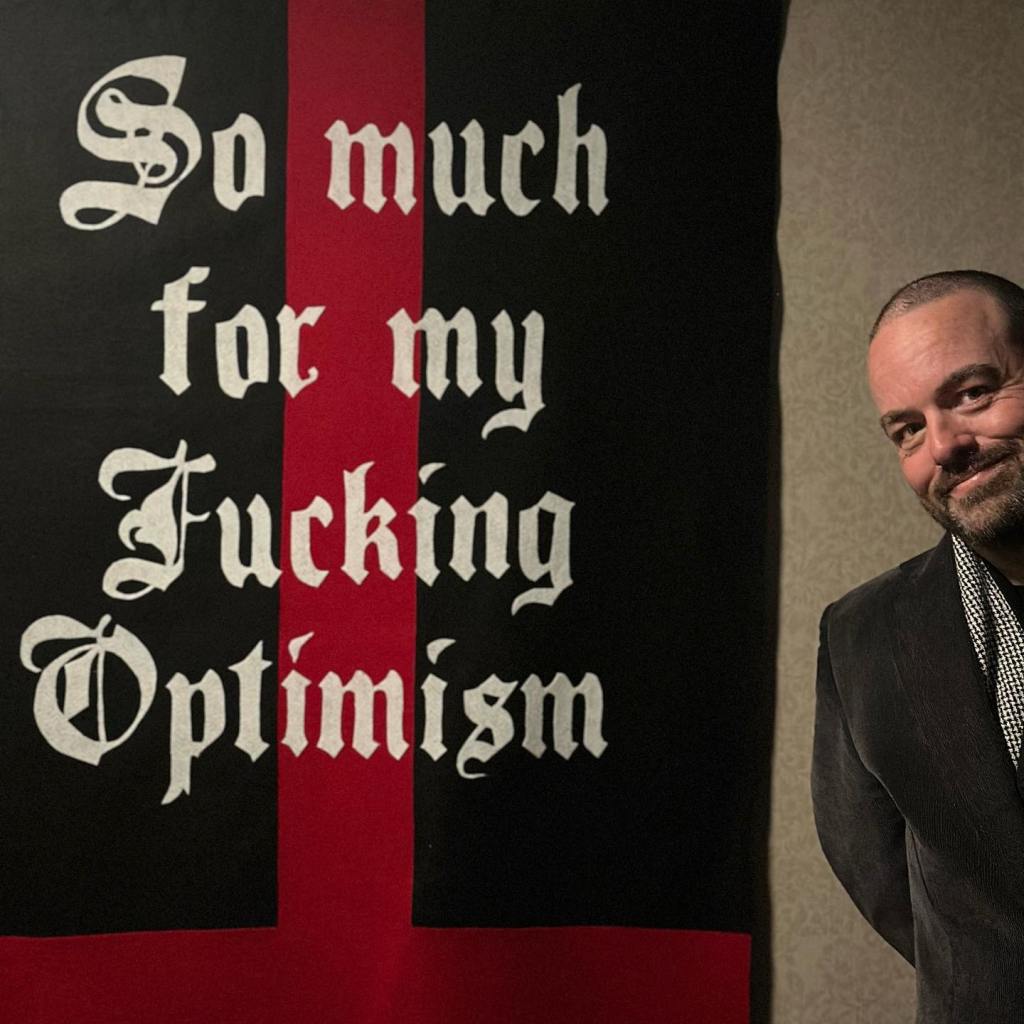
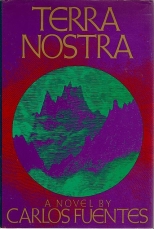
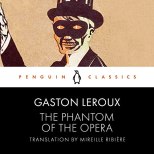
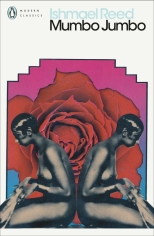
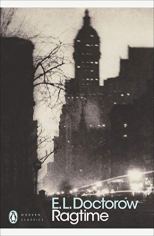
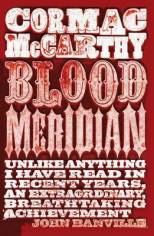
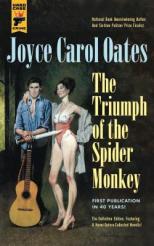
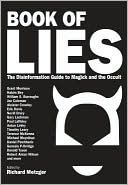
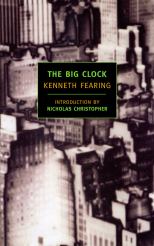
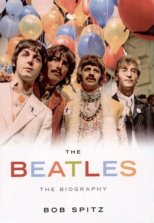
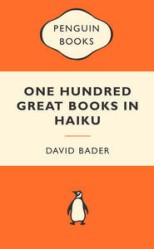
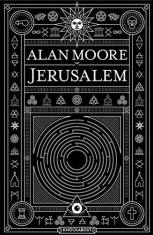
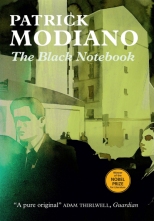
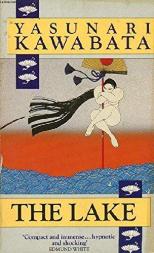
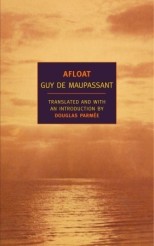
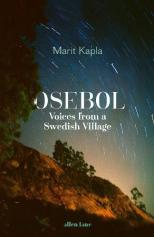

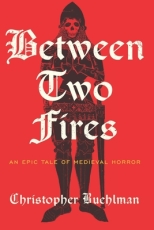
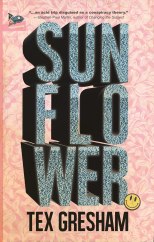

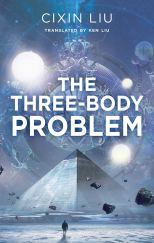
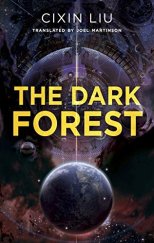
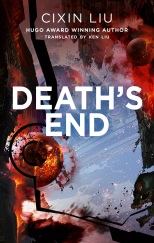
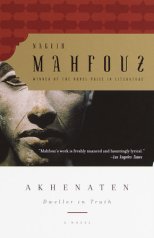
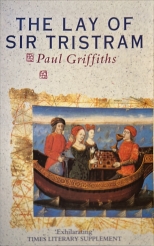
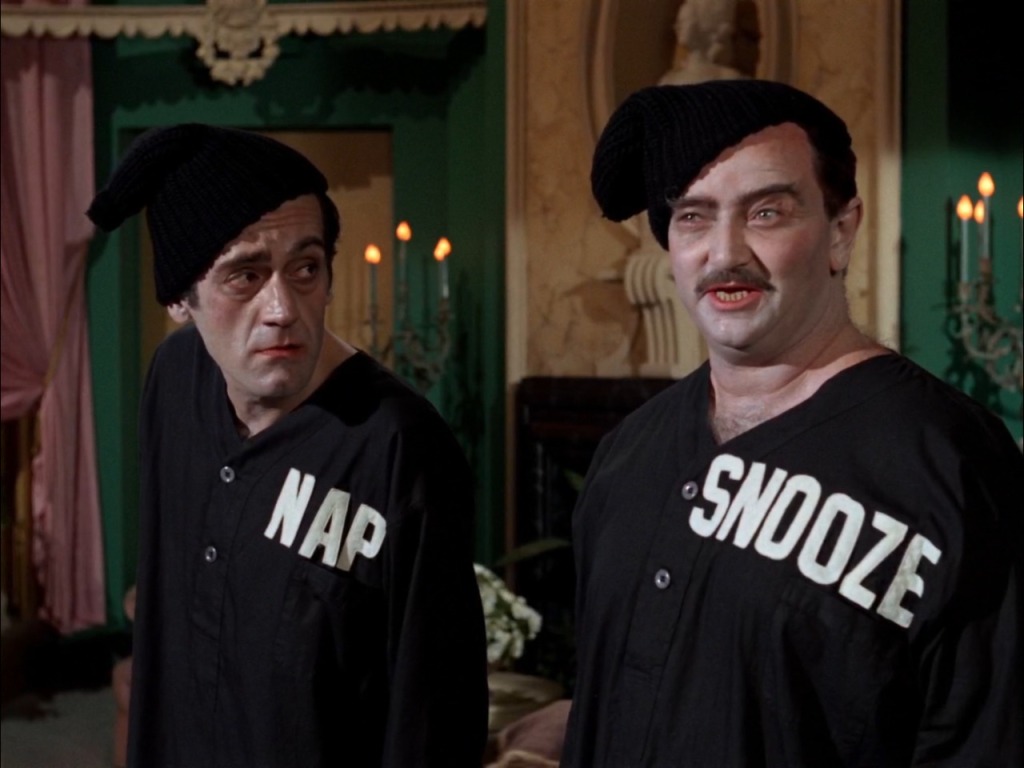
[…] Moore: PrometheaYeah, I guess thousands of pages about Northampton wasn’t enough for me, so it’s time to see what else is up the old wizard’s sleeve. […]